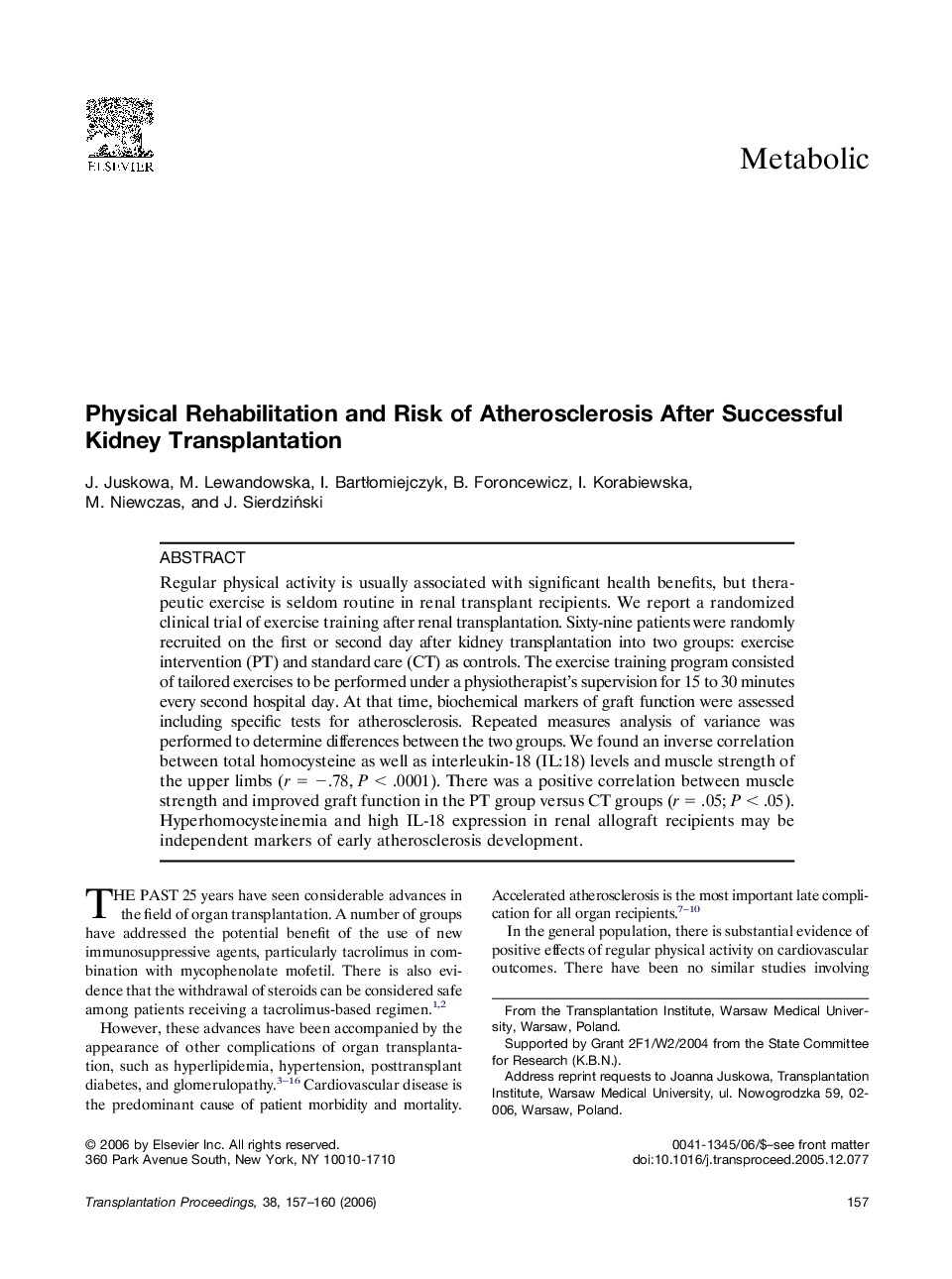| Article ID | Journal | Published Year | Pages | File Type |
|---|---|---|---|---|
| 4261806 | Transplantation Proceedings | 2006 | 4 Pages |
Regular physical activity is usually associated with significant health benefits, but therapeutic exercise is seldom routine in renal transplant recipients. We report a randomized clinical trial of exercise training after renal transplantation. Sixty-nine patients were randomly recruited on the first or second day after kidney transplantation into two groups: exercise intervention (PT) and standard care (CT) as controls. The exercise training program consisted of tailored exercises to be performed under a physiotherapist’s supervision for 15 to 30 minutes every second hospital day. At that time, biochemical markers of graft function were assessed including specific tests for atherosclerosis. Repeated measures analysis of variance was performed to determine differences between the two groups. We found an inverse correlation between total homocysteine as well as interleukin-18 (IL:18) levels and muscle strength of the upper limbs (r = −.78, P < .0001). There was a positive correlation between muscle strength and improved graft function in the PT group versus CT groups (r = .05; P < .05). Hyperhomocysteinemia and high IL-18 expression in renal allograft recipients may be independent markers of early atherosclerosis development.
